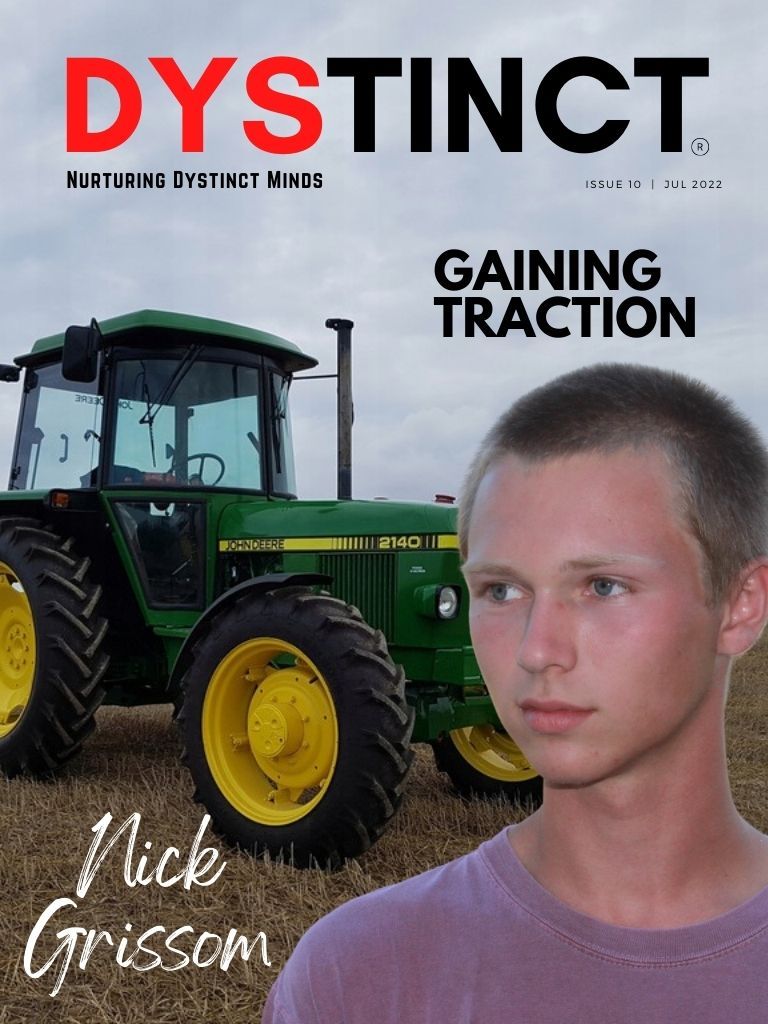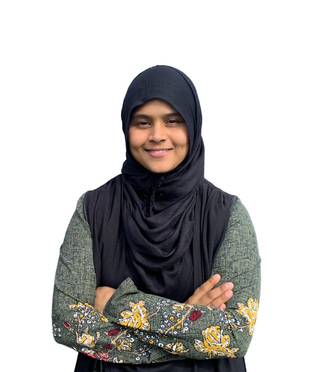Issue 10: July 2022 Dystinct Magazine
Dystinct magazine's 10th issue: July 2022 is available to download on Apple and Android devices. The issue covers inspirational stories from children and adults with learning difficulties (dyslexia, dysgraphia, dysgraphia and dyspraxia).
Table of Contents
- How to Access Dystinct Magazine
- On the Cover
- Topics covered in this issue (includes links to access on website)
- Editor's Note
- Extracts from the Magazine
How To Access Dystinct Magazine
👉 Read further below to access all the content of the magazine on the website layout. Check links to each article in Topics covered in this issue
The magazine can be accessed on your mobile and tablet devices.
👉 Apple App Store - iOS iPad/iPhone
👉 Google Play Store - Android devices
👉 Libby Apple iOS | Google Android
👉 Zinio Newstand | MagsFast Newstand | Magzter Newstand
On The Cover

On the cover is Nick Grissom.
Nick is a determined young man with a brilliantly positive attitude. In this issue, he shares his journey of how he went from raising 12 chickens to now operating a flourishing farm.
TOPICS COVERED IN THIS ISSUE
The July 2022 issue of Dystinct Magazine brings to you:
The story of 11-year-old homeschooled entrepreneur Zavier Cruz and how his mother, Maelisa Cruz, combined his love for building things and entrepreneurial spirit to make learning fun.
Dr Pledger Fedora elaborates on the revised Knowledge and Practice Standards for Teachers of Reading (2018) developed by the International Dyslexia Association (IDA), which have been designed to guide the preparation of all teachers of reading.
M. Colleen Cruz talks about the three common mistakes parents and educators of children with dyslexia make, what these mistakes reveal about our beliefs, and how we can rectify them.
Cheri Dotterer discusses how the frustration and anxiety associated with dysgraphia can affect students' motivation to engage in classrooms and provides an overview of how educators can support and strengthen the social-emotional well-being of students with dysgraphia.
Rebecca Lord explains how humans are born with an innate number sense and how understanding the neuroscience behind how the brain processes numbers can help instructors deliver math instruction that improves number sense and mathematical learning for all students.
Nick Grissom is a determined young man with a brilliantly positive attitude. In this article, he shares his journey of how he went from raising 12 chickens to now operating a flourishing farm.
Erica Kaufmann, a literacy coach and a parent of a child with dyslexia, talks of her experience supporting struggling high school students with their literacy needs and offers practical tips for both parents of children with learning difficulties and educators of high school students.
Paloma Forde discusses how children with dyslexia are susceptible to low self-esteem and anxiety and how schools can ensure that their staff are trained to spot this and provide simple adjustments to alleviate it.
Wendy Darasz and Jen Yagid provide ten creative ideas for educators to incorporate the Science of Reading into their classroom routines that can have a big impact on student growth.
Lisa Parnello enumerates crucial factors to consider when choosing between tutoring or specialist dyslexia schools for a child diagnosed with dyslexia.
Katie Larew outlines factors to consider in preventing roadblocks in your child's use of Assistive technology, both at school and at home, so the AT support in the child's IEP can be utilised effectively.
Editor's Note
Every child needs to find their own outlet!
There is so much wisdom in this piece of advice from Lisa Grissom, mum of Nick Grissom, who is featured in this issue (page 79). While we scramble to find our struggling children academic help and ferry them to and fro from their various therapy sessions, we should be mindful of what enriches their little hearts. Children need to feel like they excel at something and pursue it to their heart’s content. After all, the struggle with the school system only lasts until they graduate from school. These passions of theirs will most likely turn into a career path for them where they will excel.
I hope you enjoy reading this issue and all the specialist content covered.
Please get in touch with me if you have any feedback, ideas, or stories to share to change the narrative surrounding learning disabilities.
Thanks
Zahra Nawaz Shafeeq
Extracts from the Magazine










